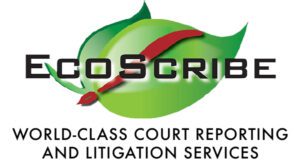Capturing the Truth: How Videotaped Depositions Enhance Case Preparation and Presentation
In the world of litigation, every detail matters. From gathering evidence to building a compelling case, attorneys strive to leave no stone unturned. Thanks to advancements in technology, one tool has emerged as a game-changer in enhancing case preparation and presentation: videotaped depositions.
In the article “Capturing the Truth: How Videotaped Depositions Enhance Case Preparation and Presentation,” we delve into the remarkable benefits of incorporating video depositions into legal proceedings. With their ability to capture not only words but also facial expressions, body language, and overall demeanor, video depositions bring a new level of authenticity to the courtroom.
By allowing attorneys to review crucial moments in real-time, video depositions grant them the opportunity to study witness reactions more effectively, identify inconsistencies, and craft more persuasive arguments. Furthermore, these recordings have proven to be valuable pieces of evidence during settlements, mediation, and trial.
In this article, we explore how video depositions have transformed the legal landscape, providing attorneys with a powerful tool for capturing the truth and presenting their cases with unwavering credibility. So join us as we uncover the many advantages that videotaped depositions offer in the world of litigation.
What is a videotaped deposition?
Depositions play a crucial role in the legal process, allowing attorneys to gather information and testimonies from witnesses and parties involved in a case. These sworn statements provide a foundation for building a strong case strategy and assessing the credibility of witnesses. Traditionally, depositions were conducted through written transcripts, limiting the attorney’s ability to fully capture the nuances and subtleties of witness testimony. However, with the advent of videotaped depositions, attorneys now have a powerful tool at their disposal to enhance their case preparation and presentation.
Videotaped depositions offer a more comprehensive way of capturing witness testimony. They allow attorneys to observe not only what is being said but also how it is being said. Facial expressions, body language, and tone of voice can all provide valuable insights into a witness’s credibility and the overall strength of their testimony. By incorporating video depositions into their case preparation, attorneys can gain a deeper understanding of the witness’s demeanor and identify potential inconsistencies that may not be apparent through written transcripts alone. This additional layer of information can significantly impact the outcome of a case.
The ability to review and analyze video depositions in real-time is another invaluable advantage. Attorneys can easily revisit specific moments, pause, and study witness reactions more effectively. This allows them to identify potential weak points in the opposing party’s case and develop more persuasive arguments. Moreover, video depositions can serve as a powerful tool during settlement negotiations, mediation, and trial. The visual impact of seeing a witness’s facial expressions and body language can greatly influence the perception of their credibility, ultimately strengthening the attorney’s position.
In summary, depositions are a cornerstone of the legal process, and the introduction of videotaped depositions has revolutionized the way attorneys prepare and present their cases. By capturing the truth through video, attorneys can gain deeper insights into witness credibility, identify inconsistencies, and craft more compelling arguments.
Benefits of using videotaped depositions in case preparation
A videotaped deposition is a recording of a witness’s testimony given under oath. It is conducted in a similar manner to a traditional deposition, with attorneys questioning the witness and the proceedings being recorded on video. The use of video technology allows for a more accurate and comprehensive capture of the witness’s testimony, including their verbal responses, facial expressions, and body language.
Videotaped depositions can be conducted in various settings, such as a law office, conference room, or even the witness’s own location through remote video conferencing. The video recording is typically synchronized with a transcript, allowing attorneys to easily navigate and reference specific portions of the deposition.
The use of video technology in depositions offers several advantages over traditional written transcripts. Firstly, video captures the non-verbal cues that are often missed in written transcripts, providing a more complete picture of the witness’s demeanor and credibility. Facial expressions, gestures, and tone of voice can all contribute to the overall understanding of the witness’s testimony and can be powerful visual evidence in court.
Secondly, video depositions allow for real-time analysis and review. Attorneys can easily replay specific parts of the deposition, focus on key moments, and study the witness’s reactions more closely. This level of scrutiny can uncover inconsistencies, contradictions, or other important details that may have otherwise been overlooked.
Overall, videotaped depositions offer a more accurate and compelling representation of witness testimony, providing attorneys with a valuable tool for case preparation and presentation.
Effectively presenting videotaped depositions in court
The credibility of witnesses plays a crucial role in the outcome of a legal case. Jurors and judges rely on witness testimony to determine the truth and make informed decisions. Videotaped depositions offer attorneys a powerful means of enhancing witness credibility and presenting a more convincing case.
One way video depositions enhance witness credibility is by capturing their demeanor and body language. Non-verbal cues can provide valuable insights into a witness’s truthfulness or lack thereof. Facial expressions, gestures, and posture can convey emotions, nervousness, or confidence that may influence the perception of the witness’s credibility. By presenting these visual cues to the judge or jury, attorneys can strengthen their case and make a more compelling argument.
Moreover, video depositions allow for a more accurate representation of witness testimony. Written transcripts can sometimes fail to capture the tone, inflection, and emphasis of a witness’s words, potentially leading to misinterpretation. Video recordings, on the other hand, provide a comprehensive view of the witness’s verbal and non-verbal communication, ensuring that the intended meaning is conveyed accurately.
Video depositions also serve as a valuable tool for impeachment purposes. If a witness’s trial testimony contradicts their earlier deposition, attorneys can use the video recording to challenge their credibility and expose inconsistencies. This visual evidence can be highly persuasive and can significantly impact the jury’s perception of the witness’s trustworthiness.
Furthermore, video depositions can be particularly effective when dealing with reluctant or hostile witnesses. The visual element of the recording can help neutralize any attempts to evade or distort the truth. Attorneys can carefully analyze the witness’s expressions and body language to counteract any attempts at deception, ultimately strengthening their case.
In summary, videotaped depositions enhance witness credibility by capturing their demeanor, body language, and verbal communication more accurately. By presenting these visual cues to the judge or jury, attorneys can bolster their case and increase the likelihood of a favorable outcome.
Tips for conducting a successful videotaped deposition
The successful presentation of videotaped depositions in court requires careful planning and consideration. Attorneys must ensure that the video recordings are seamlessly integrated into their overall case strategy and effectively convey the desired message to the judge or jury.
One key aspect of presenting videotaped depositions is the timing and sequencing of the playback. Attorneys should strategically choose the moments they wish to highlight and ensure that the video clips are presented in a logical and coherent order. This can help maintain the flow of the narrative and emphasize key points.
It is also essential to consider the technical aspects of presenting video depositions in court. Attorneys should ensure that the video and audio quality is optimal and that the playback equipment is reliable and compatible with the court’s technology systems. Testing the equipment before the trial and having backup options in case of any technical issues is crucial to a smooth and effective presentation.
In addition to the technical considerations, attorneys should also pay attention to the emotional impact of the video depositions. Powerful moments captured on video can evoke emotions and resonate with the judge or jury. Attorneys should strategically choose the clips that have the most significant emotional impact and ensure that they are presented in a way that maximizes their effect.
Furthermore, attorneys should be mindful of objections and potential challenges to the admissibility of video depositions. Familiarizing themselves with the relevant rules of evidence and preparing responses to potential objections can help attorneys overcome any hurdles and ensure the smooth admission of the video recordings.
Lastly, attorneys should be prepared to effectively argue the relevance and importance of the video depositions to the case. Clearly articulating the reasons why the video recordings are integral to the presentation of the evidence can help convince the judge or jury of their value.
In conclusion, effectively presenting videotaped depositions in court requires careful planning, technical considerations, and strategic selection of key moments. By paying attention to these aspects, attorneys can maximize the impact of video depositions and effectively convey their case to the judge or jury.
Legal considerations and guidelines for using videotaped depositions
Conducting a successful videotaped deposition requires careful preparation and execution. Attorneys should follow these tips to ensure that the process goes smoothly and the desired outcomes are achieved.
1. Prepare thoroughly: Before the deposition, attorneys should thoroughly review the case documents, anticipate potential lines of questioning, and develop a comprehensive strategy. This preparation will ensure that the deposition remains focused and productive.
2. Choose a suitable location: Select a location that is conducive to a comfortable and professional deposition environment. Consider factors such as privacy, lighting, and noise levels to ensure that the witness feels at ease and can provide their testimony effectively.
3. Test the equipment: Prior to the deposition, test all the recording equipment to ensure that it is in working order. Check the video and audio quality, and make any necessary adjustments or replacements to guarantee a clear and accurate recording.
4. Establish clear ground rules: At the beginning of the deposition, establish clear ground rules for the proceedings. This includes guidelines for speaking, objections, breaks, and any other relevant matters. Clear communication and expectations will help maintain a productive and respectful environment.
5. Make the witness comfortable: Creating a comfortable and non-intimidating environment for the witness is crucial to obtaining truthful and accurate testimony. Offer breaks when needed, provide water, and ensure that the witness has a clear understanding of the process.
6. Ask clear and concise questions: When questioning the witness, attorneys should ask clear and concise questions to elicit precise and focused responses. This will help avoid confusion and ensure that the desired information is obtained.
7. Monitor non-verbal cues: Pay close attention to the witness’s non-verbal cues throughout the deposition. Facial expressions, body language, and tone of voice can provide valuable insights into the witness’s credibility and the strength of their testimony.
8. Maintain a professional demeanor: Attorneys should maintain a professional and respectful demeanor throughout the deposition. This includes refraining from personal attacks, being patient with the witness, and avoiding any behavior that may undermine the credibility of the attorney or the process.
9. Document any objections: If there are any objections raised during the deposition, clearly document them for future reference. This will help attorneys prepare responses and address any potential challenges during the trial.
10. Review and edit the deposition: After the deposition, attorneys should carefully review the video recording, take note of any necessary edits or corrections, and ensure that the final version accurately represents the witness’s testimony.
By following these tips, attorneys can conduct successful videotaped depositions that provide valuable evidence and enhance their case preparation.
Tools and technology for recording high-quality videotaped depositions
While videotaped depositions offer numerous benefits, it is essential for attorneys to be aware of the legal considerations and guidelines surrounding their use. Adhering to these guidelines will ensure that the video recordings are admissible in court and that the process remains fair and ethical.
1. Compliance with local rules: Familiarize yourself with the specific rules and regulations of the jurisdiction where the deposition will be used. Each jurisdiction may have its own requirements regarding notice, recording methods, and admissibility.
2. Obtaining consent: Ensure that all parties involved in the deposition, including the witness, consent to being recorded on video. Failure to obtain proper consent may render the video recording inadmissible in court.
3. Maintaining a neutral environment: It is crucial to maintain a neutral and unbiased environment during the deposition. Avoid any behavior or actions that may influence or manipulate the witness’s testimony. The goal should be to elicit truthful and accurate information, not to coerce or intimidate the witness.
4. Preserving the chain of custody: It is important to maintain the integrity of the video recording by properly preserving the chain of custody. This includes documenting who has had access to the recording, keeping it in a secure location, and ensuring that it is not tampered with or altered in any way.
5. Authentication and admissibility: To ensure the admissibility of video depositions in court, attorneys should follow the proper authentication procedures. This may involve presenting the deposition to the court, establishing its authenticity, and providing any necessary supporting documentation.
Case studies: Successful outcomes using videotaped depositions
Videotaped depositions have revolutionized the way attorneys approach case preparation and presentation. In the past, attorneys relied solely on written transcripts to capture the testimony of witnesses. While transcripts provide an accurate record of the words spoken, they often fail to capture the nuances of communication – facial expressions, body language, and overall demeanor. This is where video depositions come into play.
With the help of modern technology, attorneys can now record high-quality video depositions that capture the truth in its entirety. High-definition cameras, microphones, and advanced video recording software ensure that every detail is captured with utmost clarity. Additionally, the use of multiple camera angles allows for a comprehensive view of the witness and the proceedings, further enhancing the authenticity of the deposition.
The advantages of using video depositions extend beyond the courtroom. Attorneys can easily review and analyze these recordings, granting them a deeper understanding of witness behavior and reactions. By studying witness demeanor in real-time, attorneys can identify inconsistencies, gauge credibility, and strategically plan their next moves. Furthermore, the ability to playback specific moments of the deposition proves invaluable during trial preparation, as attorneys can easily locate and reference key moments to strengthen their arguments.
Incorporating video depositions into case preparation also enables attorneys to collaborate more effectively with their legal teams. By sharing video recordings, attorneys and their colleagues can collectively analyze witness testimony, brainstorm strategies, and assess the strengths and weaknesses of the case. This collaborative approach not only enhances the quality of case preparation but also ensures that all team members are on the same page, working towards a common goal.
In conclusion, the tools and technology available for recording high-quality video depositions have transformed the legal landscape. Attorneys now have the ability to capture the truth in ways that were previously impossible with written transcripts alone. By leveraging these tools, attorneys can gain a deeper understanding of witness behavior, identify inconsistencies, and craft more persuasive arguments. The use of video depositions has become an essential element in case preparation, allowing attorneys to present their cases with unwavering credibility and authenticity.
Conclusion: Leveraging the power of videotaped depositions in your legal practice
The adoption of videotaped depositions has yielded remarkable results in numerous legal cases. Let’s take a closer look at some real-world examples where the use of video depositions played a pivotal role in achieving successful outcomes.
In a high-profile medical malpractice case, the defense team utilized video depositions to present a compelling argument. By capturing the facial expressions and body language of the plaintiff’s witnesses, the defense was able to highlight inconsistencies in their testimony. These visual cues, combined with the witnesses’ words, significantly weakened their credibility in the eyes of the jury. The video depositions proved to be a powerful tool in discrediting the opposing party’s case, ultimately leading to a favorable settlement for the defense.
Similarly, in a complex corporate litigation case, the plaintiff’s legal team strategically incorporated video depositions into their trial preparation. By carefully analyzing the witness’ demeanor and reactions during the deposition, the attorneys were able to identify key inconsistencies in their testimony. This allowed them to build a strong case, presenting evidence that contradicted the witness’ statements. The video depositions served as irrefutable evidence, leading to a successful verdict in favor of the plaintiff.
These case studies illustrate the transformative power of videotaped depositions in the courtroom. The ability to capture not only the words spoken but also the nonverbal cues and overall demeanor of witnesses provides attorneys with a compelling advantage. By presenting video depositions, attorneys can bring the truth to life, leaving no room for doubt or interpretation.


